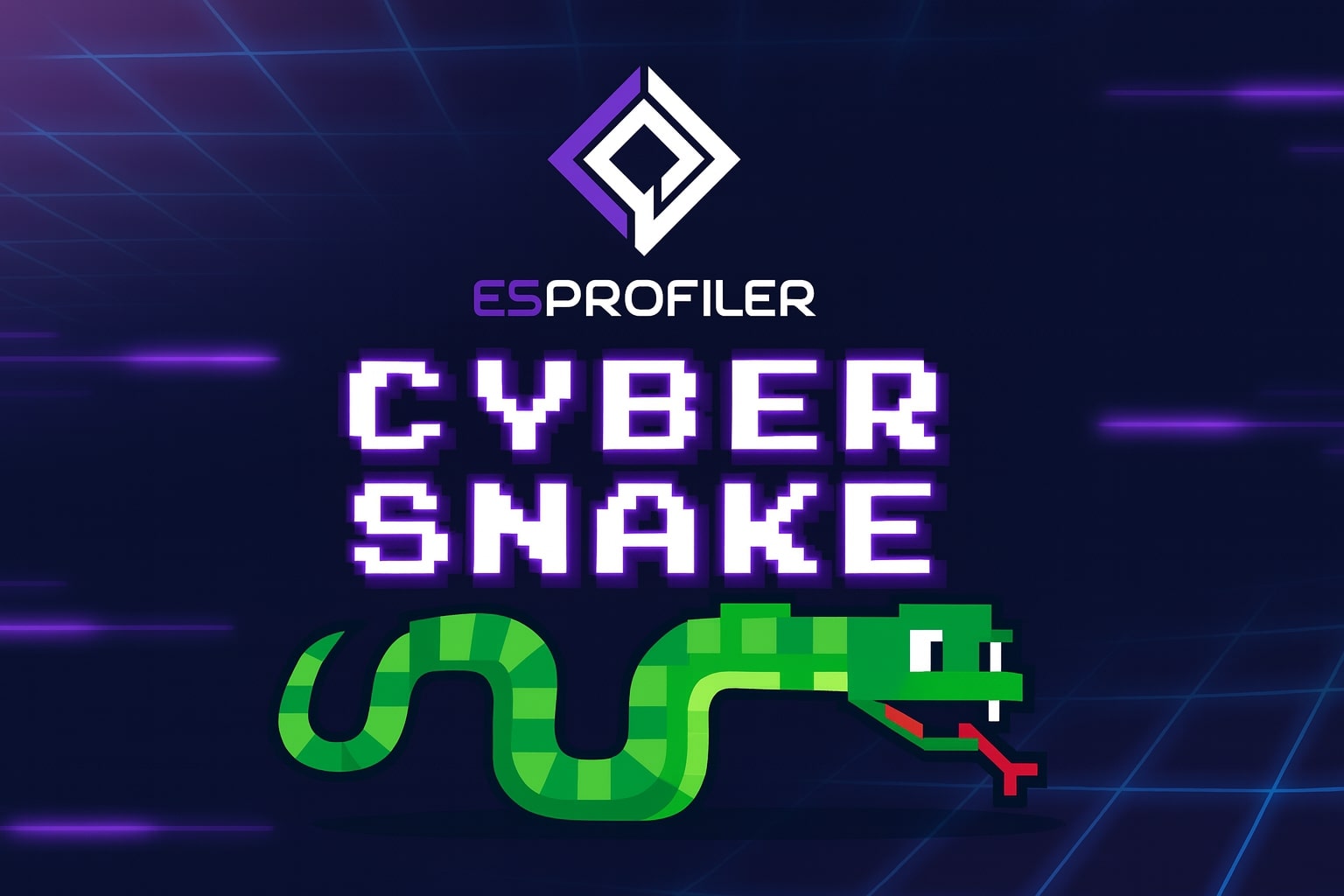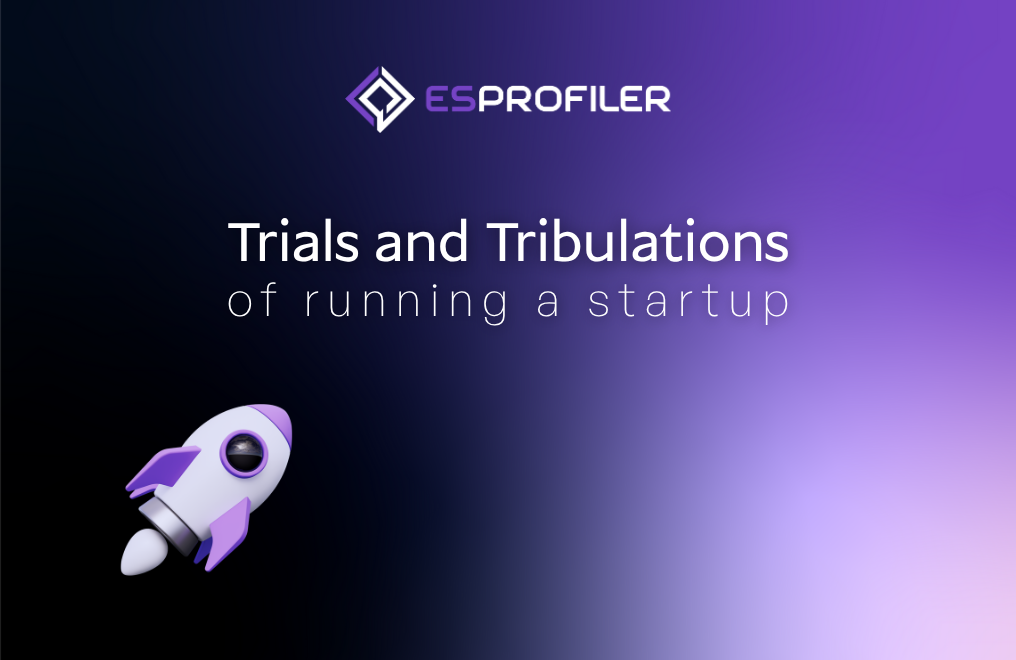Building a Brand from Scratch
I thought I'd share some insights & lessons learned from a few of the steps I've taken to build the marketing function at ESPROFILER.

When I joined ESPROFILER, the list of to-dos was a mile long, from crafting our first social media calendar to setting up an email marketing system. It's a challenge that many marketers face in the startup world, but it's also one of the most rewarding. You define the brand's voice, identify the core audience and lay the foundation for every campaign that comes after.
That being said, I thought I'd share some insights & lessons learned from a few of the steps I've taken to build the marketing function at ESPROFILER.
Socials, Emails, and Events, Oh My!
The first step in any startup marketing plan is to get the basic infrastructure in place. You have to go back to the beginning.
Social Media: Social media isn't just about posting pretty pictures; it’s about establishing a presence and building a community from the ground up. You're not just posting content, you're trying to start conversations, engage with industry leaders, and build a brand identity one like, share and comment at a time.
In this environment, you quickly learn that quality beats quantity. It's not about hopping on every trend or posting multiple times a day just for the sake of it. Instead, you have to be intentional with every single post. This means crafting content that is authentic to your brand, addresses your audience's needs, and provides genuine value. This is how you cut through all of the noise and truly define who your brand is.
Email Marketing: There are no existing, refined lists or automated flows. It's a blank slate, and you have to start from scratch by setting up the right platforms and crafting that first welcome email. You're building a direct line of communication with your future customers, nurturing those relationships and getting the hang of which content works for which audience. And once you get that down, your automation game is going to slay.
When you're a startup, there are no existing, refined lists or automated flows. It's a blank slate, and you have to start from scratch by setting up the right platforms and crafting that first welcome email. But the real magic comes from segmenting your audience from day one. That's a marketer's best friend, honestly. You're building a direct line of communication with your future customers and nurturing those relationships, and getting the hang of which content works for which audience is all part of the fun. Once you get that down, your automation game is going to absolutely slay.
Events: Attending events is a crucial part of a startup’s strategy. Honestly, how else are you going to get yourself out there? It’s where you get to meet people in your industry, discuss your product, and see your competition in person. You get to be the face of the company, telling its story and bringing its vision to life. It’s a lot of work (how do events people do it!?), but it’s a brilliant way to build your brand’s reputation from the ground up.
Beyond the obvious, events are invaluable for building trust and credibility. In a crowded market, meeting someone face-to-face helps you go from a faceless brand to a real company with real people. It's also an incredible way to get real-time feedback. You're on the front lines, so you can hear directly from potential customers about their struggles and what they honestly think of your product. That kind of feedback is golden for shaping your marketing message and product roadmap. And of course, there's the networking. Events aren't just for sales, they're where you can find potential partners, investors, or even future team members who can help your company grow.
Integrating Marketing into Sales and Development (Befriending)
In a startup, the traditional silos between departments don’t exist. As a new marketer coming in, you’re deeply integrated with sales and development from day one, meaning you’re free to ask a million questions, request two million demos & make three million suggestions (I’m being dramatic, but you get the gist). This can be a challenge, but it’s also a MASSIVE advantage.
Sales: In a big company, marketing hands over "leads" to sales. In a startup, you're a partner (or bestie, whichever you prefer). I work directly with our sales team to understand their challenges, get feedback on the content I'm creating and collaborate on strategies to reach and convert prospects. The sales team's insights are invaluable for shaping our marketing message, and I’d be lost without them (shoutout to Ed & Adam).
Development: Marketers know what the customer wants. And developers have the talent to create it. I have a direct line of communication with our development team, so I can provide feedback on the look of our ESPROFILER platform as well as its functionality. This ensures that the features we build and the messages we create are always in sync. This tight feedback loop means we can work faster and create a better product for our customers.
Final note
Before I stop yapping, I’d like to highlight that marketer life in a startup (or most organisations, frankly) can be tricky. Truth is, you’ll be constantly changing your mind, updating messaging, trying to find the “sweet spot” everyone bangs on about. But that’s also the fun of it. The creative flow & wiggle room to try new things you get in startup life is unlike anything I've experienced in my career so far.
The process of building a marketing function from nothing is intense. It requires hard work and a willingness to sink your teeth into every task. But watching the brand you've helped build start to gain traction, seeing your campaigns drive real results and knowing that your work is directly contributing to the company's growth is incredibly rewarding.
ESPROFILER has been a whirlwind journey over the last year, but I wouldn’t have it any other way.








.png)






